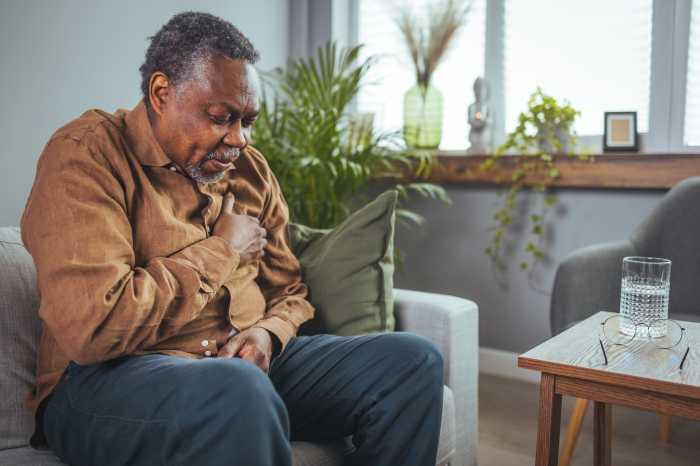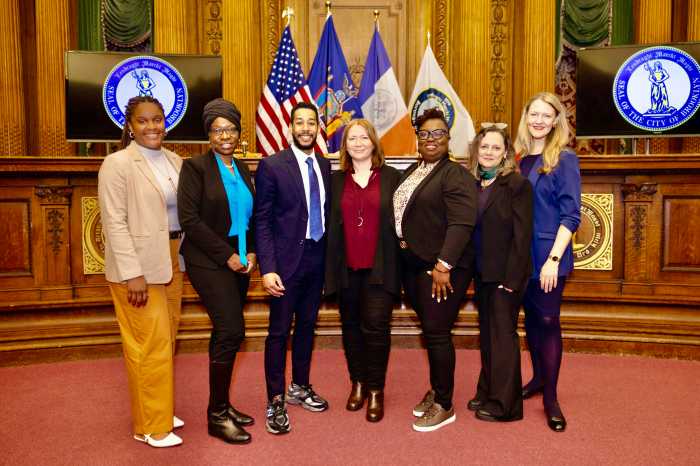President Barack Obama says he is seeking more federal money for efforts to prevent and treat HIV/AIDS in the U.S., the Caribbean and globally.
“So make no mistake, we are going to win this fight,” Obama told international activists, celebrities and lawmakers of both Democratic and Republican parties assembled at George Washington University in Washington for the annual World AIDS Day, 30 years after the disease was identified.
“But this fight is not over — not by a long shot,” he added. “At a time when so much in Washington divides us, the fight against this disease has united us across parties and across presidencies.
“It shows that we can do big things when Republicans and Democrats put their common humanity before politics,” Obama continued.
In 2003, former President George W. Bush led a commitment to tackle the disease on a global scale, doubling funding to US$15 billion by 2008.
Obama has continued the effort, asking Congress for almost US$7 billion in fiscal 2011, up 1.8 percent from fiscal 2010.
Secretary of State Hillary Clinton, in a speech on Nov. 8, announced an additional US$60 million commitment to the President’s Emergency Plan for AIDS Relief, known as Pepfar.
Throughout his administration, activists have complained that the Obama administration has done less for the global fight than Bush.
But Obama said that, under his administration, the government has increased support for the Global Fund to Fight AIDS, Tuberculosis and Malaria.
“The president just put a powerful down payment toward the end of the AIDS crisis,” said Matthew Kavanagh, director of advocacy for Health GAP, an activist group, in a statement.
The international group, Doctors Without Borders, hailed Obama’s financing commitment as “the shot in the arm that the global HIV/AIDS response needs right now,” and called on Congress “to turn this commitment into reality.”
The U.S. will host the 2012 International AIDS Conference in Washington in July, as more than 25,000 scientists and advocates gather to discuss new research, best practices and the most effective policies to abolish the disease.
The number of people living with HIV worldwide climbed to 34 million from 32.9 million in 2009, three United Nations agencies said in a report on Thursday.
The report also said 20 times as many people are being treated with antiretroviral drugs than in 2002.
As the world heads into the fourth decade of AIDS, it is finally in a position to end the epidemic, Secretary-General Ban Ki-moon said, leading a chorus of United Nations officials in calling for the political will, investments and determination to reach this goal.
“Momentum is on our side. Let us use it to end AIDS – once and for all,” Ban said in his message for World AIDS Day, observed on Dec. 1 each year.
“The progress we have made so far is proof that we can realize our vision of zero new HIV infections, zero discrimination and zero AIDS-related deaths,” he added.
The number of new HIV infections has fallen by more than 20 per cent since 1997, Ban noted. New infections are continuing to decline in most parts of the world.
In addition, treatment has averted 2.5 million AIDS-related deaths since 1985, saving 700,000 lives last year alone.
“But, to end AIDS, we need to deliver even greater results,” stressed the Secretary-General. “We must build on the political commitments, investments, energy, activism and determination that have brought us to this turning point.”
Chairman of the PAN Caribbean Partnership Against HIV/AIDS (PANCAP), St. Kitts and Nevis’ Prime Minister Dr. Denzil L. Douglas reiterated the region’s commitment to UNAIDS’ vision of zero discrimination, zero new HIV infections, and zero AIDS related deaths through universal access to effective HIV prevention, treatment care and support and redouble our efforts to make this a reality.
“As challenging as combating the HIV and AIDS pandemic remains, we must remain strong and resolute as we continue on our path to HIV elimination and draw courage and motivation to carry on our efforts from the progress that we have been making in the Caribbean,” he said.
“We must never let the challenges that we encounter on a daily basis in this fight bring despair or hopelessness,” he added.
“PANCAP has championed the cause and continues to develop and coordinate the implementation of programs across the region designed to reduce stigma and discrimination, accelerate the agenda for achieving universal access to prevention, care, treatment and support services and collaborate to increase awareness of the need to develop anti stigma and discrimination policies and legislation,” Douglas continued.
“In a resource constrained environment, PANCAP has enhanced the coordination of prevention, treatment and care activities throughout the Caribbean. Its role in reducing the impact of HIV and AIDS is undeniable and sustaining PANCAP’s institutional capacity cannot be over emphasized,” said the current chairman of the Caribbean Community.




















